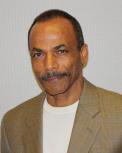After Confrontation, Then What?: Nonviolence as a Theory of Social Change and Human Development for the Peace and Conflict Field
Abstract: This dissertation argues nonviolence is not only underutilized, but also under-theorized and, thus, not wholly understood in the field of peace and conflict. Its findings interpret Dr. Martin Luther King, Jr.’s ideas of “peaceable power” and a “revolution of values.” Its conclusions rearticulate nonviolence as a “meta-logic” that subsumes three discrete forms: direct, structural, and cultural. One might recognize these concepts as counter-posing to Johan Galtung’s seminal work on violence. This is precisely the author’s intent: the nonviolence meta-logic and counter-pose become a heuristic model or (non)violence continuum and a framework for palpable theory and praxis for the peace and conflict field.
Using the mid-twentieth century US civil rights movement and the work and writings of Dr. King, the author conducted qualitative research through case study and grounded theory, as well as thematic and hermeneutic content analysis on an extensive literature review. Drawing on theoretical frameworks proffered by Johan Galtung, Paulo Freire, and Etienne Balibar, the author rearticulates nonviolence theory and praxis as a new logic of nonviolence that reinterprets its putative meaning beyond resistance or direct action, whether pragmatic or principled.





